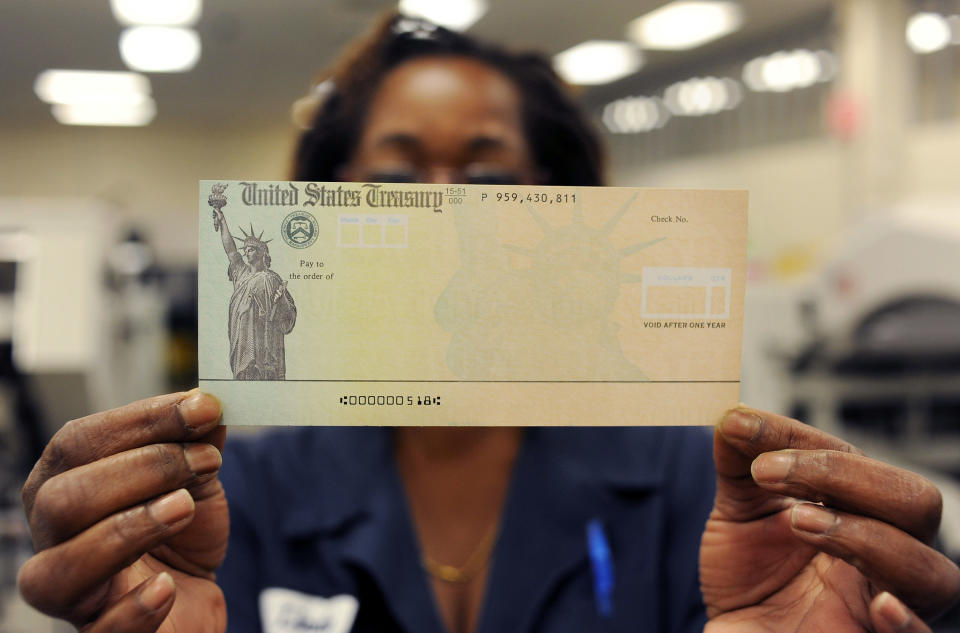Why a ‘vast majority’ of Americans are not getting the most out of Social Security
Americans moving into retirement can opt to start getting their Social Security checks anytime between the ages 62 and 70.
But it’s a tradeoff. Claim early and you get extra years, but smaller checks for the rest of your life. Wait a few years and you’ll get more each month, but with fewer years to receive them.
It’s not a small difference — the benefit received at age 70 can be over 75% higher than at 62 — most people aren’t getting this crucial decision right, according to a new report from the Bipartisan Policy Center.
A “vast majority” of Americans “do not claim Social Security at their optimal age, usually because they claim too early” the report found.
It cites a study commissioned by United Income with some eye-popping numbers: An average household will lose $95,000 over a lifetime because of early claiming and just 4% of older Americans claim at the age that would maximize their wealth.
And the current pandemic could make the difference even more pronounced. Three million fewer Americans over 55 have jobs now versus February, according to the Bureau of Labor Statistics. This drop in income right on the cusp of retirement could be a strong and justified motivation to claim early.

‘We could be doing more’
The 60-page report — entitled Helping Americans Claim Social Security at the Right Age — offers advice for people to maximize their benefits and for policymakers to help educate the public.
“Most people aren’t provided with the right, timely information to help them make this critical decision” said Shai Akabas, the director of economic policy at the Bipartisan Policy Center, during a Yahoo Finance appearance to coincide with the report’s release.
“We could be doing more to help Americans improve their retirement security” he added, listing a range of factors people often don’t weigh. One example is how waiting could “mean higher benefits for your spouse if they outlive you because their benefit is going to be determined by the age at which you claim.”
Akabas appeared as part of Yahoo Finance’s ongoing partnership with the Funding our Future campaign, a group of organizations advocating for increased retirement security for Americans.
As Americans live longer and longer, many appear to simply misunderstand the the benefits of waiting and underestimate how long they will be around to receive checks.

Claiming early makes sense if you have immediate financial obligations or will only be collecting checks into your 70s. But the Social Security Administration projects that an average 62-year-old man will live to age 82, while 15% of them will reach age 92. An average 62-year-old woman will live to 85 with 14% likely to reach 95.
Yet the most common claiming age — by a mile — is 62. Nearly 35% of men and close to 40% of women opt into the Social Security system as soon as they can, the report found.
Some might be tempted to opt in based on uncertainty about how long Social Security will be around.
President Donald Trump has proposed a permanent payroll tax cut that could exhaust Social Security funds by 2023. Akabas doubted that Congress would ever go along with something like that and even the president’s allies have been cool to the idea recently.
And a more gradual funding shortfall — which could come as early as the end of the decade if Congress does nothing — would likely take the form of benefit reductions across the board.
“That’s going to affect everyone equally” said Akabas and should not impact anyone’s decision on when to claim.
Ben Werschkul is a producer for Yahoo Finance in Washington, DC.
Read more:
Why the ‘statewide IRA’ could be a way to lessen the racial retirement gap
One way to reduce the racial wealth gap is with more 401(k)s: Expert
Report lays out how the gender pay gap becomes a retirement wealth gap
Read the latest financial and business news from Yahoo Finance
Follow Yahoo Finance on Twitter, Facebook, Instagram, Flipboard, LinkedIn, YouTube, and reddit.

 money
money 
